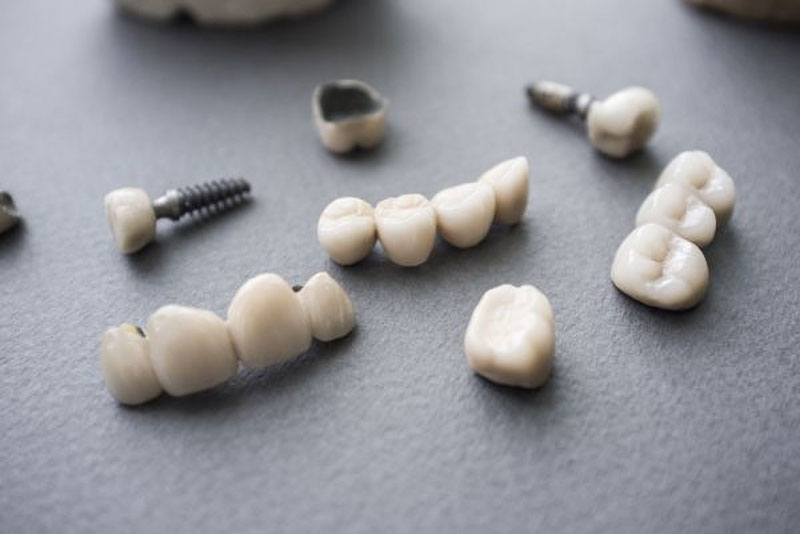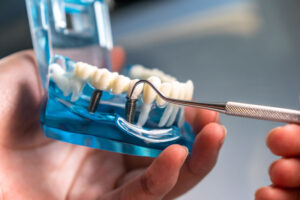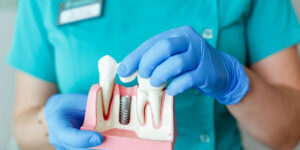Teeth do not automatically become immune to every oral issue known to humans simply because they have been covered with dental crowns. Crowns – often called caps – offer a lot of protection to the tooth they enclose, but they are not absolute protection.
Oral bacteria are tricky little rascals, and they can make their way underneath a crown, particularly if the person does not have good oral hygiene. When these bacteria get underneath the crown, they begin to convert any sugars that make their way into the crown to acids that eat away at enamel. That leads to the tooth rooting away.
Why teeth protected with dental crowns sometimes rot
During the installation of a dental crown, the dentist takes off a portion of enamel. This is done to ensure a good, tight fit with the prosthetic. The enamel is the strongest part of the human body, and its job is to protect the inner, weaker layers of the tooth. Removing a portion of enamel in preparation is not a huge deal since the crown serves as a new enamel and is actually more resistant to acids than a real tooth’s enamel is.
The problem is that not everyone takes proper care of their teeth. Dental crowns are extremely easy to maintain since they do not require any kind of specialized cleaning. When a person fails to take good care of their mouth, their gums are susceptible to infection, and bacteria can make their way to the tooth that way.
Crowns can also become damaged over time. They can be damaged by trauma to the mouth or chewing on hard things. When a crown is damaged, it becomes easier for bacteria to get past it to the tooth underneath. If bacteria can get past the crown, so can the sugars they feed on. The bacteria excrete acids after their feast, and the acid stays there for a prolonged period of time since there is no saliva.
When a tooth that is not covered with a crown is exposed to acids, the time it gets to eat away at the tooth is limited, since it is washed away by saliva. That means a tooth under a crown is more susceptible to decay than one that is not if the prosthetic becomes compromised.
Keeping the tooth under a dental crown healthy
Here are some simple things that can be done to keep a crowned tooth healthy and free of decay:
- Clean the mouth as advised by a dentist. Brush two times each day and floss at least once
- Avoid habits that can compromise the crown
- Get the crown fixed as soon as possible when damage is noticed
- Have the crown inspected at least twice each year by a dentist
- Head to a dentist if you notice a black line at the base of a ceramic or porcelain crown
A crown serves as artificial enamel
Take good care of your dental crown and the tooth underneath should be healthy for a long time. Stop by our San Antonio clinic if you are dealing with an issue that requires a crown or checkup.
Request an appointment here: https://www.preferreddentalcenter.com, or call Preferred Dental Center at (210) 822-8500 for an appointment in our San Antonio office with our doctors, Dr. Andres Biaggi and Dr. Jordan Walterscheid.
Check out what others are saying about our services on our Google My Business Page: Read our Google reviews.




